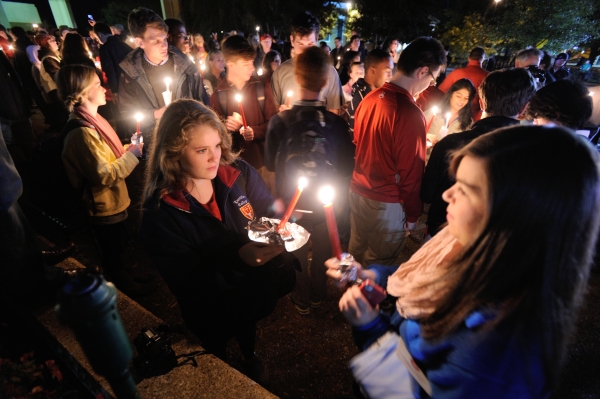But instead, over 400 U. of Mississippi students came together to protest the re-election of President Obama. This wasn't a civil protest either, students filled the area with racial slurs and even went so far to burn an Obama campaign poster. In response, U. of Mississippi's Chancellor Dan Jones, "shamed the few students who damaged the university's reputation." It was wonderful to hear that in response to this violent protest- students, staff, and faculty also reacted by creating, within five hours, a candlelight vigil.

Sadly, this wasn't the only racial motivated protest that occurred in response to Obama's re-election. A small all-male school near Richmond, Sydney College -- lashed out as well. Although smaller, over 40 students "threw bottles, shouted racial epithets and set off fireworks outside the Minority Student Union on campus."
I found this article on Inside Higher Ed and was completely disheartened to hear that there continues to be so much hate out there. Both of these incidents show that although it is incredibly important to have free speech, some individuals just take it too far. Burning a campaign poster of our president's head- really? We've talked about the space of public opinion and quite frankly, close minded individuals really take advantage of this freedom.
I do believe that everyone has the right to voice their opinion, it is a free country, but everyone should try and be cognizant of others and the ramifications that their words might have. What good is free speech when it goes from bringing awareness to hurting others? Protesting brings awareness to important issues, look at the Occupy movement, but once again it's important to avoid extremes.
Is anyone surprised by these protests? Can you imagine something like this even happening at North Central College?




